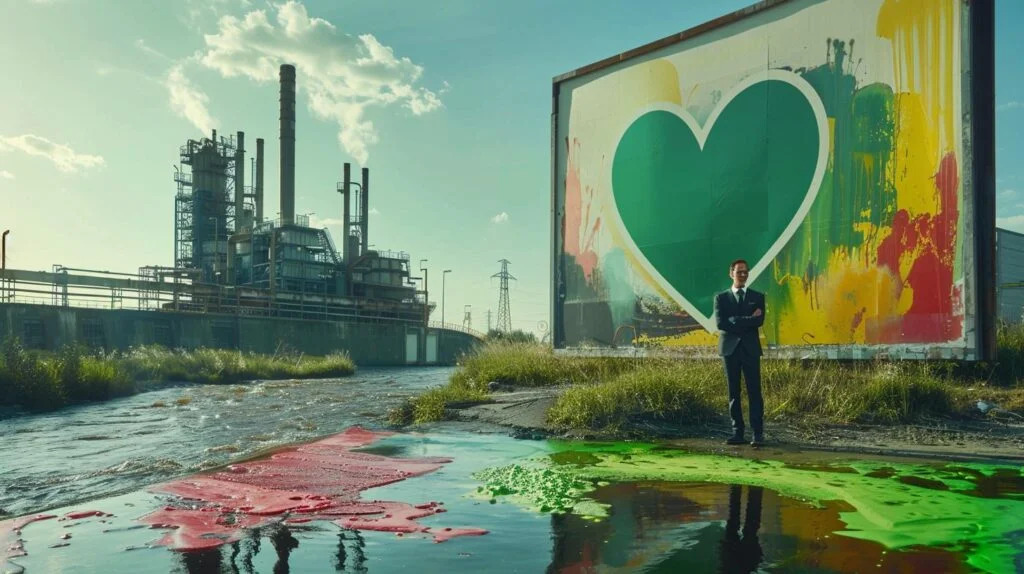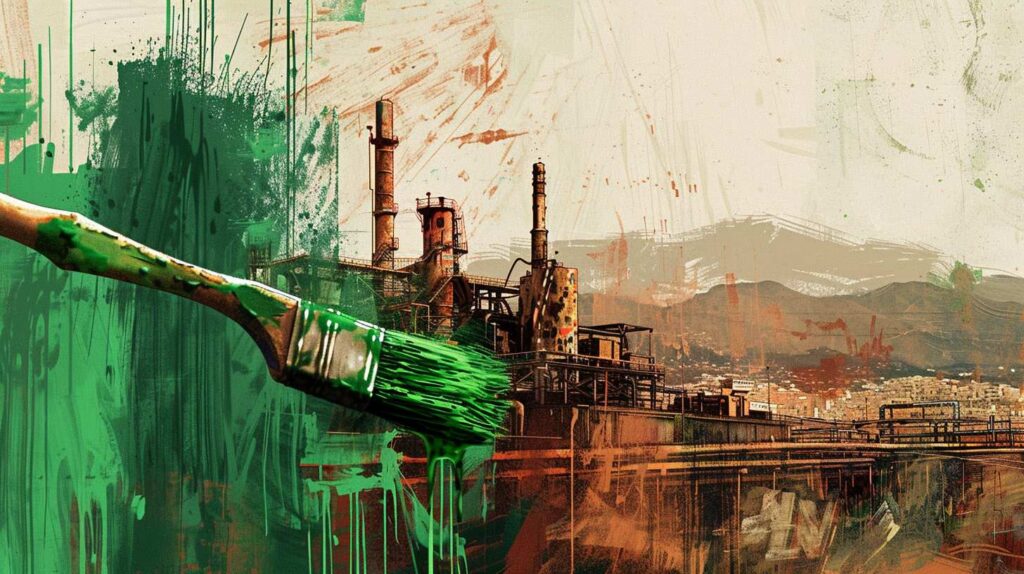Truth & Goodness
Poison on a Plate: What Drives Us to Eat Dangerously?
01 March 2026

We are witnessing the transformation of the labor market. It is made possible by the use of tools based on artificial intelligence. As a result of these changes, the importance of soft skills is constantly strengthening. In the face of generative content and automation on the one hand, and the handling of large amounts of variable data on the other, the psychosocial and creative abilities of the employee become invaluable. Today, green competencies seem to be a new kind of soft skills. How will environmental sensitivity affect the market and may it be used by corporations for greenwashing practices?
Voices of the need for green transformation can be heard from various directions. However, implementing many-sided pro-environmental solutions in the economic and social areas must be preceded by increased environmental awareness, which will translate into developing specific skills. Which ones in particular? They will depend on the individual’s predispositions and the needs of a specific economic or public sector. Such a combination of theoretical knowledge about climate and the environment with practical skills is called green competencies.
What is behind the term? The answer is unclear; there is no single definition of this new set of qualifications. Marta Ziółkowska from the Warsaw School of Economics notes that the way of categorizing both green competencies and emerging green professions depends on the institution or the state. The term “green” is perceived differently by Denmark, France, and Poland, similar discrepancies occur between individual international organizations. According to Ziółkowska, “different understanding inhibits comparing patterns and trends between countries and making general observations.”
The United Nations Industrial Development Organization, one of the UN bodies, proposes a general definition. “Simply put, green competencies are the knowledge, skills, values, and attitudes needed to live, develop, and support an environmentally friendly and resource-efficient society,” we can read on their website. At the same time, ecological qualifications would involve efficient adaptation of the employee to changes, for which two dynamic forces are responsible: Socio-economic transformation and an increase in the average global temperature.
We recommend: Antiheroes in Pop Culture. Far from Heroes, Yet Captivating Audiences

Similar to teamwork and effective communication, green skills can be developed while learning. Of course, a lot depends on our characteristics and capabilities. However, researchers emphasize the important role of education in this process. Maria Ángeles Murga Menoyo from the UNESCO Chair in Environmental Education and Sustainable Development indicates that promoting transdisciplinary thinking about the natural environment, in which we are embedded in all areas of life, is the mission of the university.
The idea behind green competencies assumes that they will not be limited only to the professional space, all the more our specific position. In other words, sensitivity to environmental relationships will not only function between 8:00 a.m. to 4:00 p.m. Such skills, like soft skills, are supposed to translate into our relations, consumer choices, and ways of participating in culture.
But what ecological capabilities can we specify? For Łukasz Kozar, an economist at the University of Łódź, the basic distinction in this issue concerns behavioral and functional competencies. The former, behavioral, is close to soft skills and refers to the way one behaves at work. Kozar enumerates “creative thinking and ethical behavior of an environmental nature, or the ability to manage people under environmental danger” among them. The latter type, green functional competencies, corresponds to the specialist knowledge in a given position, which overlaps with ecological knowledge. They may concern, as the economist points out, for example, the “economical use of raw materials” at work.
Green competencies are a response to the policy of sustainable development in the economy and sensitivity to the perspective of low-emission activities. Provided the thought and need behind the green qualifications of employees are ethically right and correspond to the conditions in which we live, some cases of their real use do not have to have such a positive overtone. As a result, employees working in green positions in large corporations can indicate the necessary pro-environmental solutions. They can also, thanks to their communication skills, convince their implementation. But ultimately the result may be radically different.
One of the many examples of greenwashing or green hypocrisy of fast fashion brands was the actions of Swedish clothing company H&M, which were revealed by journalists from the Aftonbladet daily. The high-profile scandal concerned the company’s campaign to recycle used clothes that customers could bring into shops in exchange for discount vouchers for their next purchases. The manufacturer is required under the program to transfer unwanted clothing to recycling centers. Such selected textiles were to gain a new life on store shelves.
However, the investigation conducted by the Aftonbladet journalists showed something completely different. The clothing that was part of the program had GPS transmitters attached to it, which documented their long, high-emission route. In many cases, it ended not in stores, but thousands of kilometers away – in landfills and garbage incinerators in Africa, among others in the Republic of Benin and the Republic of Ghana, or in India. One can say that it was the green competencies, that is, the ecological sensitivity of the Swedish journalists, that led to the disclosure of this scandal.
We recommend: Blood, Guts, and Blushes. The Allure of True Crime Series and Podcasts

Few people currently contest the values of soft skills. For example, a specialized engineer who has created an optimal solution to a problem will, at some point, need to communicate it properly and explain it. In other words, soft skills complement hard skills. In the world of rapid technological development and progressive automation, skills related to collaboration, communication, and creativity only gain in value. The same goes for green competencies.
As we enter insecure times, which, a few decades ago, climate scientists described as possible future scenarios, we, as individuals or businesses, need to be aware of the environmental dimension of our actions. This should be borne in mind regardless of the use of pro-ecological competencies as a facade for real anti-ecological actions by some entities.
Similarly, as in the case of soft skills, the range and importance of green skills will vary depending on the sector in which we function. However, we will not escape from environmental relationships. We must be prepared for these new conditions regardless of the shape of the external state or European regulations. Despite our optimistic beliefs, the climate has had and will continue to have, a substantial influence on our reality and everyday life.
Translation: Marcin Brański
Read the text in Polish: Zielone kompetencje. Korporacyjny greenwashing czy przyszłość rynku pracy?

Truth & Goodness
01 March 2026


Zmień tryb na ciemny